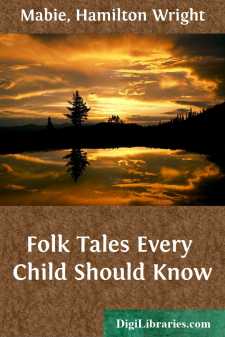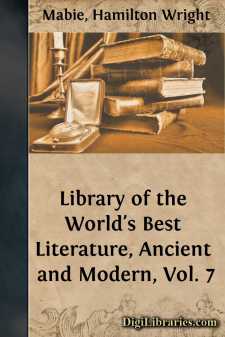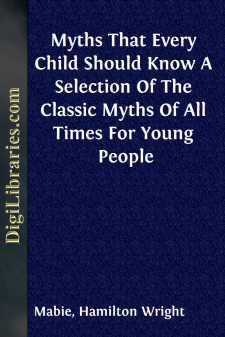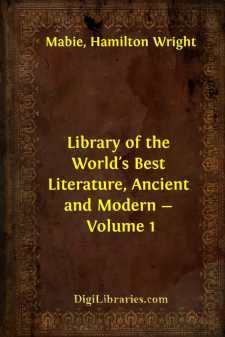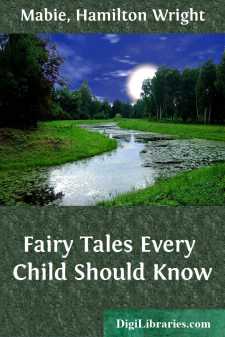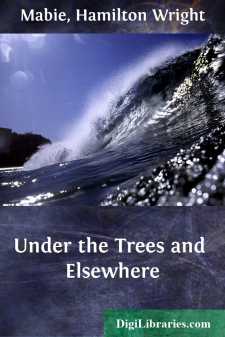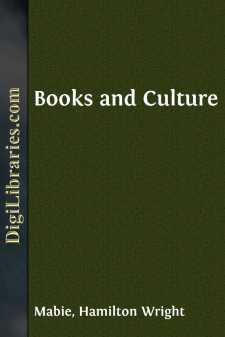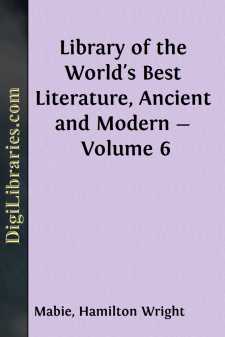Categories
- Antiques & Collectibles 13
- Architecture 36
- Art 48
- Bibles 22
- Biography & Autobiography 813
- Body, Mind & Spirit 141
- Business & Economics 28
- Children's Books 12
- Children's Fiction 9
- Computers 4
- Cooking 94
- Crafts & Hobbies 4
- Drama 346
- Education 46
- Family & Relationships 57
- Fiction 11826
- Games 19
- Gardening 17
- Health & Fitness 34
- History 1377
- House & Home 1
- Humor 147
- Juvenile Fiction 1873
- Juvenile Nonfiction 202
- Language Arts & Disciplines 88
- Law 16
- Literary Collections 686
- Literary Criticism 179
- Mathematics 13
- Medical 41
- Music 40
- Nature 179
- Non-Classifiable 1768
- Performing Arts 7
- Periodicals 1453
- Philosophy 64
- Photography 2
- Poetry 896
- Political Science 203
- Psychology 42
- Reference 154
- Religion 513
- Science 126
- Self-Help 83
- Social Science 81
- Sports & Recreation 34
- Study Aids 3
- Technology & Engineering 59
- Transportation 23
- Travel 463
- True Crime 29
Hamilton Wright Mabie
Hamilton Wright Mabie (1846-1916) was an American essayist, editor, and critic renowned for his works on literature and culture. He served as an editor for *The Christian Union* (later *The Outlook*) and wrote numerous essays promoting the moral and educational value of literature. Mabie was also a prolific author, penning books such as "My Study Fire" and "Books and Culture," which contributed significantly to the intellectual and cultural discourse of his time.
Author's Books:
Sort by:
I HANS IN LUCK Hans had served his Master seven years, and at the end of that time he said to him: "Master, since my time is up, I should like to go home to my mother; so give me my wages, if you please." His Master replied, "You have served me truly and honestly, Hans, and such as your service was, such shall be your reward;" and with these words he gave him a lump of gold as big as...
more...
HENRY CUYLER BUNNER (1855-1896) The position which Henry Cuyler Bunner has come to occupy in the literary annals of our time strengthens as the days pass. If the stream of his genius flowed in gentle rivulets, it traveled as far and spread its fruitful influence as wide as many a statelier river. He was above all things a poet. In his prose as in his verse he has revealed the essential qualities of a...
more...
INTRODUCTION In many parts of the country when the soil is disturbed arrow heads are found. Now, it is a great many years since arrow heads have been used, and they were never used by the people who own the land in which they appear or by their ancestors. To explain the presence of these roughly cut pieces of stone we must recall the weapons with which the Indians fought when Englishmen, Frenchmen,...
more...
ABÉLARD BY THOMAS DAVIDSON ierre, the eldest son of Bérenger and Lucie (Abélard?) was born at Palais, near Nantes and the frontier of Brittany, in 1079. His knightly father, having in his youth been a student, was anxious to give his family, and especially his favorite Pierre, a liberal education. The boy was accordingly sent to school, under a teacher who at that time was making his mark in the...
more...
If we knew how the words in our language were made and what they have meant to successive generations of the men and women who have used them, we should have a new and very interesting kind of history to read. For words, like all other creations of man, were not deliberately manufactured to meet a need, as are the various parts of a bicycle or of an automobile; but grew gradually and slowly out of...
more...
INTRODUCTION TO "FAIRIES EVERY CHILD SHOULD KNOW" The fairy tale is a poetic recording of the facts of life, an interpretation by the imagination of its hard conditions, an effort to reconcile the spirit which loves freedom and goodness and beauty with its harsh, bare and disappointing conditions. It is, in its earliest form, a spontaneous and instinctive endeavor to shape the facts of the...
more...
An April Day My study has been a dull place of late; even the open fire, which still lingers on the hearth, has failed to exorcise a certain gray and weary spirit which has somehow taken possession of the premises. As I was thinking this morning about the best way of ejecting this unwelcome inmate, it suddenly occurred to me that for some time past my study has been simply a workshop; the fire has been...
more...
Chapter I. Material and Method. If the writer who ventures to say something more about books and their uses is wise, he will not begin with an apology; for he will know that, despite all that has been said and written on this engrossing theme, the interest of books is inexhaustible, and that there is always a new constituency to read them. So rich is the vitality of the great books of the world that...
more...
INTRODUCTION The group of stories brought together in this volume differ from legends because they have, with one exception, no core of fact at the centre, from myths because they make no attempt to personify or explain the forces or processes of nature, from fairy stories because they do not often bring on to the stage actors of a different nature from ours. They give full play to the fancy as in...
more...
THE ABBÉ DE BRANTÔME (PIERRE DE BOURDEILLE) (1527-1614) very historian of the Valois period is indebted to Brantôme for preserving the atmosphere and detail of the brilliant life in which he moved as a dashing courtier, a military adventurer, and a gallant gentleman of high degree. He was not a professional scribe, nor a student; but he took notes unconsciously, and in the evening of his life...
more...


